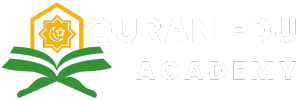The Quran, the holy book of Islam, holds immense spiritual, moral, and intellectual value for Muslims around the world. It is the ultimate source of guidance, wisdom, and enlightenment. However, many people find it challenging to truly understand and connect with the Quran. Whether you’re a beginner or have been learning the Quran for years, finding the right approach to Quranic learning is essential for gaining a deeper understanding and forging a stronger relationship with Allah.
This article will guide you on how to choose the best and most effective ways to learn the Quran. We’ll discuss different learning methods, their benefits, and how you can personalize your approach to Quranic study to achieve a better understanding. By the end of this article, you’ll be empowered with the knowledge to embark on your Quranic learning journey in a way that works best for you.
Why Learning the Quran is Important
Before diving into the methods of learning the Quran, it’s important to understand why learning it is so crucial. The Quran is more than just a text to read; it’s a divine book meant to provide guidance in every aspect of life. Allah Himself has mentioned the importance of learning the Quran in Surah Al-Baqarah (2:2): “This is the Book about which there is no doubt, a guidance for those conscious of Allah.”
When you learn the Quran, you’re not only memorizing verses; you’re gaining knowledge about how to live a righteous life, maintain a strong relationship with Allah, and understand the purpose of life. Therefore, it is essential to approach Quranic learning with the right mindset, the right tools, and the right methods.
1. Set Clear Intentions
The very first step in learning the Quran in the right way is to set clear and sincere intentions. Intention (Niyyah) is crucial in Islam, as it determines the value and purpose of your actions. Before you start your Quran learning journey, ask yourself: Why do I want to learn the Quran?
Some may wish to learn it to gain spiritual rewards, while others may want to understand the Quran’s teachings better. Whatever your intention is, make sure it aligns with your desire to grow closer to Allah and to follow His guidance. Setting your intention for Allah’s pleasure will make your Quran learning journey more meaningful and rewarding.
2. Choose the Right Learning Method
Now that you have set your intentions, it’s time to decide on the learning method that works best for you. There are multiple ways to learn the Quran, and the best method will depend on your preferences, lifestyle, and the resources available to you.
A. Traditional Methods of Learning the Quran
The traditional approach to learning the Quran involves attending Quran classes at a mosque or Islamic center, where a teacher provides guidance and instructions. This method is often beneficial for those who prefer face-to-face interaction and personalized learning. The benefits of this approach include:
- Direct Teacher-Student Interaction: You can ask questions and receive feedback directly from a knowledgeable teacher.
- Structured Learning: Quran classes are usually well-structured and follow a specific curriculum, helping you learn systematically.
- Community Support: Learning in a group provides motivation and encouragement from fellow learners.
However, this method may not be suitable for everyone due to time constraints or location limitations. For those who cannot attend in-person classes, online Quran learning has become a popular alternative.
B. Online Quran Learning
Online Quran learning has gained significant popularity due to its flexibility and accessibility. With numerous platforms and resources available, you can learn the Quran at your own pace and convenience. Some benefits of online learning include:
- Flexibility: You can learn anytime and anywhere, fitting Quranic study into your schedule.
- Variety of Resources: Online platforms offer a range of resources, including video lectures, audio recitations, translations, and interactive quizzes.
- One-on-One Classes: Many online platforms provide live, one-on-one sessions with experienced Quran teachers.
Online learning is perfect for those who prefer self-paced learning or live in areas where in-person Quran classes aren’t readily available. Moreover, online platforms often offer specialized courses for various levels, such as beginner, intermediate, and advanced learners.
C. Quran Memorization (Hifz)
For some, memorizing the Quran (Hifz) is a significant goal. Memorization requires dedication, discipline, and a deep spiritual connection. When memorizing, you are internalizing the words of Allah and preserving them in your heart. The benefits of Hifz include:
- Spiritual Rewards: Memorizing the Quran brings immense spiritual rewards as mentioned in the Hadith: “The best of you are those who learn the Quran and teach it.” (Sahih al-Bukhari)
- Strengthens Connection with Allah: Memorization helps you build a close and personal relationship with Allah, as the Quran is always with you in your heart and mind.
- Mental Sharpness: Studies show that memorizing the Quran improves mental discipline, memory, and concentration.
Hifz requires consistency and patience. You may want to allocate specific times each day for memorization, along with revision to retain what you’ve learned.
3. Reflect on the Meaning of the Quran
It’s not enough to simply read the Quran or memorize it. To truly understand and benefit from its teachings, it’s important to reflect on the meanings of the verses. The Quran encourages us to reflect deeply on its message, as Allah says in Surah Muhammad (47:24): “Do they not reflect upon the Quran, or are there locks upon their hearts?”
A. Tafseer (Exegesis)
Tafseer refers to the interpretation and explanation of the Quranic verses. When you study the Quran, it’s essential to refer to authentic Tafseer to understand the context, historical background, and lessons behind the verses. Many online platforms provide access to detailed Tafseer in various languages, helping you interpret the Quran in a way that applies to modern life.
B. Language Understanding
If possible, learning Arabic can be extremely beneficial. While translations help, the Arabic language is the original language of the Quran, and understanding it allows you to connect with the Quran on a deeper level. Even if you’re not fluent, learning key Arabic phrases and terms can enrich your understanding of the text.
4. Apply Quranic Teachings in Your Life
The ultimate goal of learning the Quran is not just to gain knowledge, but to apply its teachings in your daily life. The Quran guides you on how to be a good person, how to interact with others, and how to live a righteous life. When you study the Quran, focus on how you can implement the lessons into your actions and decisions.
- Daily Actions: Whether it’s kindness to others, patience in difficult situations, or honesty in your dealings, strive to live by the Quran’s teachings every day.
- Dua (Supplication): Make dua for Allah to help you understand the Quran and to guide you in applying its teachings. Ask for the strength to implement the wisdom you gain from the Quran in your daily life.
5. Seek Consistency and Patience
Learning the Quran is a journey that requires consistency, patience, and dedication. Don’t rush through it. Set small, achievable goals, whether it’s reading a few verses every day, memorizing a short surah, or reflecting on a specific chapter. Over time, these small steps will lead to a greater understanding of the Quran.
Conclusion
Choosing the right way to learn the Quran is crucial to achieving a deeper understanding of this holy book. Whether you prefer traditional classes, online platforms, or a personalized approach like Hifz, the key is to maintain sincerity, consistency, and a desire for spiritual growth. By reflecting on the Quran’s meanings, applying its teachings, and nurturing your connection with Allah, your learning journey will be both fulfilling and transformative.
Remember, the Quran is not just a book to be read—it’s a guide to living a life that is pleasing to Allah. So, start your learning journey today with the right intention and the right methods, and you’ll find yourself on the path to deeper understanding and closeness to Allah.

